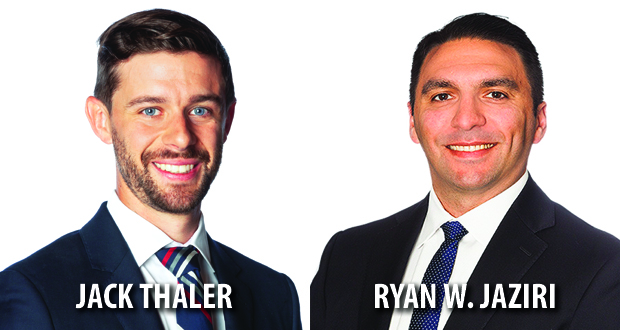
In a significant move ending pandemic-era regulations in Massachusetts, Gov. Charlie Baker announced that, effective May 29, all industries would be permitted to operate at full capacity and that most COVID-19 restrictions would be lifted. The announcement fast tracks the state’s previously announced reopening plans by more than two months and ends the state of emergency in Massachusetts on June 15.
Baker also announced that, effective May 29, the state’s face covering order would be rescinded in favor of the state Department of Public Health’s new face covering advisory tracking updated guidance from the Centers for Disease Control and Prevention for vaccinated individuals.
Acting Mayor Kim Janey stated that Boston would align with the state in lifting all business restrictions on May 29, a reversal of the city’s prior position of lagging behind the state’s reopening plan by approximately three weeks.
The Occupational Safety and Health Administration also briefly weighed in, temporarily adopting the CDC’s guidance while signaling that further information would be forthcoming.
As a result of these changes, attorneys counseling employers should be prepared to assist their clients as Massachusetts transitions into the “new normal.”
CDC updates face covering, social distancing guidelines
Baker’s announcement comes on the heels of the CDC’s surprise update to its face covering and social distancing guidelines. On May 13, the CDC announced that fully vaccinated people, with a few notable exceptions, could resume activities in all settings, both indoor and outdoor, “without wearing a mask or staying six feet apart, except where required by federal, state, local, tribal, or territorial rules, and regulations, including local business and workplace guidance.”
Individuals are considered fully vaccinated two weeks after their second dose in a two-dose series, such as the Pfizer or Moderna vaccines, or two weeks after a single-dose vaccine, such as Johnson & Johnson’s Janssen vaccine.

The CDC recommends that fully vaccinated individuals continue to wear a face covering while in correctional facilities and homeless shelters.
Notably, the CDC’s update applies only in “non-healthcare” settings. Additionally, all travelers are still required to follow the CDC’s order requiring individuals to wear masks on all airplanes, ships, ferries, taxis, ride-shares, buses, trains and other forms of public transportation, and in transportation hubs such as airports, bus or ferry terminals, train or subway stations, seaports and ports of entry.
Fully vaccinated individuals also no longer need to get tested for COVID-19; self-quarantine before or after traveling domestically; or get tested, quarantine or be restricted from work following a known exposure, if asymptomatic.
However, the CDC still recommends that fully vaccinated individuals get tested within three to five days upon returning to the United States following international travel, or if they are a resident or employee of a correctional facility, detention facility or a homeless shelter and have been exposed to COVID-19.
The updated guidance states that individuals must continue to follow state and local guidelines relating to face coverings and social distancing, including local business and workplace guidance.
As specifically noted in the CDC guidance, businesses must still comply with state and local COVID-19 guidelines and restrictions applicable to their workplace. Thus, businesses with locations in multiple jurisdictions must ensure their compliance with any state or local COVID-19 restrictions that remain in place, including mask mandates.
Moreover, because employees and customers may be confused by conflicts between state and CDC guidance, businesses should continue to clearly communicate their COVID-19 safety policies.
Massachusetts lifts most restrictions, updates face covering requirements
Following the abrupt changes announced by the CDC, Massachusetts businesses were left wondering how the new guidance would impact the state’s plan to not fully reopen until August.
Four days later, however, Baker announced that most restrictions would be lifted on businesses in Massachusetts, effective May 29.
All businesses, including those that have been forced to remain closed throughout the pandemic, are allowed to reopen at 100 percent capacity, including bars, beer gardens, breweries, wineries, distilleries, dance clubs, street festivals, parades and agricultural festivals.
In addition to shedding capacity restrictions, restaurants are no longer required to impose time limits, table seating caps, or social distancing requirements. The indoor and outdoor gathering limit has also been rescinded.
Because employees and customers may be confused by conflicts between state and CDC guidance, businesses should continue to clearly communicate their COVID-19 safety policies.
The state’s new face covering advisory, also effective May 29, rescinds and replaces the state’s prior face covering order. In adopting the CDC’s guidance for vaccinated individuals, the advisory states that fully vaccinated people can now participate in all activities (with several exceptions noted below), both indoors and outdoors, without wearing a face covering or social distancing.
Those who are not fully vaccinated are advised to continue avoiding crowds and poorly ventilated spaces, wear face coverings, and stay six feet apart from others who do not live in an individual’s household.
In certain locations, both vaccinated and unvaccinated people will still be required to wear face coverings at all times, including:
- while riding public and private transportation including the MBTA, commuter rail, buses, ferries and airplanes, and while in ride-shares, taxis and livery vehicles, as well as in transportation hubs such as train stations, ferries, bus stops and airports;
- inside K-12 public schools, collaboratives and approved special education schools;
- inside child care programs licensed or authorized by the Department of Early Education and Care and as otherwise required by the EEC or DPH;
- inside health care facilities and provider offices;
- inside congregate care settings;
- inside health care and rehabilitative day services and programs.
It is important to note, however, that employers and businesses may still elect to implement and enforce their own safety guidelines even after the May 29 lifting of restrictions.
Employers should communicate their expectations regarding vaccinations, face coverings, social distancing and other safety precautions to their workforces, while taking into account their obligations under state and federal anti-discrimination laws including, but not limited to, the potential need to accommodate individuals’ disabilities or religious objections.
OSHA, EEOC: updated guidance forthcoming
Other federal agencies are also considering revisions to their COVID-19 guidance given the CDC’s shift.
OSHA provided a short update on its website recognizing and temporarily adopting the CDC’s position, stating that it is “reviewing the recent CDC guidance and will update our materials on this website accordingly. Until those updates are complete, please refer to the CDC guidance for information on measures appropriate to protect fully vaccinated workers.” OSHA’s prior directive had been for employers to protect their workforces by mandating face coverings in the workplace.
The Equal Employment Opportunity Commission is also likely to issue updates, posting on its website that its previously issued guidance was prepared prior to the CDC’s guidance, and that it is “considering any impact of these developments on COVID-19 technical assistance provided to date.”
Counsel for Massachusetts businesses should continue to closely monitor EEOC, OSHA and other federal and state guidance in the coming weeks, which may require further workplace adjustments as Massachusetts workplaces continue to open.
Ryan W. Jaziri and Jack Thaler practice at Morgan, Brown & Joy in Boston, which focuses exclusively on representing employers in employment and labor matters. They can be contacted at [email protected] and [email protected].
 New England Biz Law Update
New England Biz Law Update
